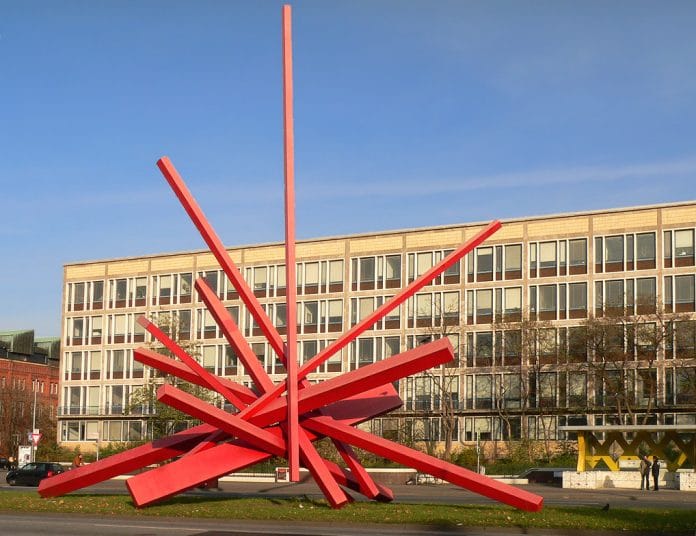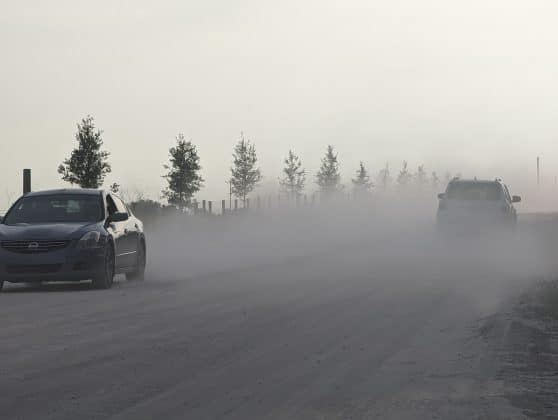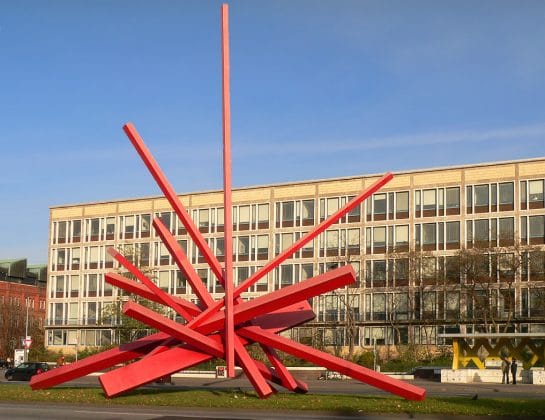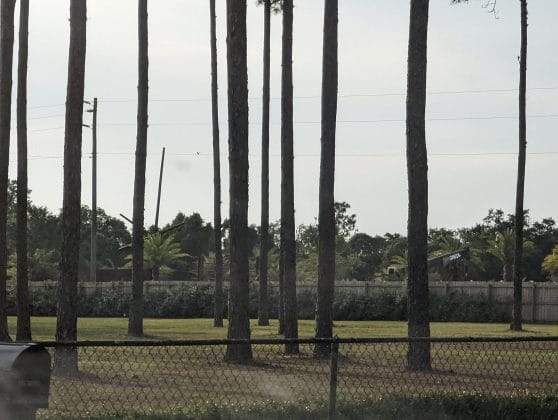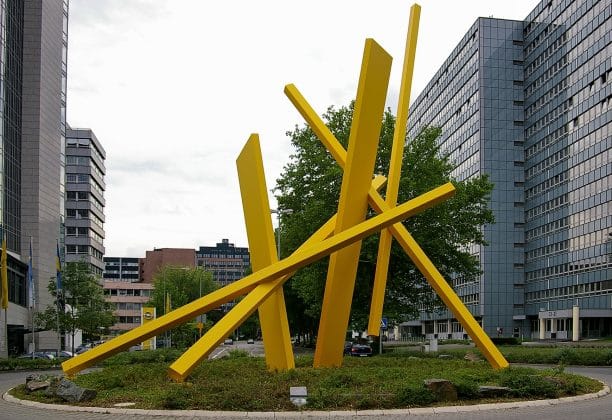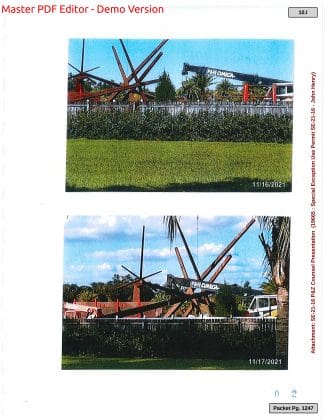In a more irregular public hearing involving attorneys on both sides, the Board of County Commissioners (BOCC) voted 5-0 to approve the special exception petitioned by John Henry, a Brooksville-based, world-renowned sculptor. The exception that will allow Henry to continue to conduct his sculpting business at his home will expire on May 31, 2023.
It was mentioned that Henry plans to retire following the completion of his 2 current projects, however, it was not confirmed. Currently one of the projects is underway at a fabrication facility in Citrus county.
Part of Henry’s 30-acre property is used as a palm tree farm. The operation of this business was not in question. It is zoned as Agricultural (AG).
Henry’s works involve large-scale sculptures that vary in size, some over 80 feet vertically. According to his website, Henry’s sculptures appear internationally, from the US Pacific Northwest to Hanover, Germany, and Shenzhen, China. Closer to home, “Complexus” appears in Sarasota. At the University of Florida (UF), Henry’s famous “Alachua” sculpture was installed at Turlington Hall in 1987. The sculpture is a landmark known to UF students as “The French Fries.”
Current statutes regulating home-based businesses stipulate that the activity must occur inside the home only, and also regulates vehicle presence and parking.
Attorney Joe Mason represented John and Margaret Diane Bast, who reside at 195 Spring Lake Highway, adjacent to Henry’s property. Henry and his wife Pamela were represented by Attorney Bruce Snow.
Snow began by showing 2-minutes of drone footage showing the 3-parcel property containing the tree farm, the family residence, and the parcel containing a 4,185 square feet of area in question where the sculptures are built.
Henry’s sculptures incorporate large pieces of aluminum, steel, and bronze that are welded together. The process also requires a crane for the lifting and setting of beams. The studio is located 470 feet from Spring Lake Highway and is screened by a 6-foot-tall opaque fence and vegetation.
The Basts and some of Henry’s other neighbors who opposed the exception cited noise and air pollution from smoke as reasons why he should not be able to conduct his business on the property, located on the west side of Spring Lake Highway, approximately 1,500 feet north of Dan Brown Hill Road.
Mason described the Bast’s view from inside their home. “They’re continually looking at the outdoor storage … they’re looking at the cranes. They can’t get away from it.” Mason went on to say that the Henrys were cited by Code Enforcement for “operating an industrial site on agricultural property.”
“The issue comes down to what type of activity is being conducted on the property, and it is indeed a manufacturing business. Manufacturing is allowed in the industrial areas of the county … manufacturing is defined as the processing of materials and the mechanical transformation of those materials into new products. That’s exactly what he’s doing. He’s manufacturing the art.”
Margaret Diane Bast testified that in addition to noise from the equipment, “The employees have to yell over the sound of the cranes running with their foul mouths to communicate. This is all right at my back door. Since the Henry’s moved into the neighborhood, it’s been nothing but an eyesore next door.”
Her husband John commented in addition “If he thought anything about it, (he has) been doing this for 55 years, and he doesn’t know where he is supposed to be?
Yet other neighbors and members of the art community support Henry. Neighbor Chere McDill testified that she has not been affected by the production. “We have a gentleman in his 70s who’s getting ready to retire, he’s found a fabricator for his next piece of art. He’s only got one client. When you’re a manufacturer, you have lots of clients, you have lots of activity, you have lots of things that you’re selling and building.” McDill added that she has visited the Henry home and never witnessed significant smoke or noise.
“He’s maybe got two more significant sculptures to deal with. Let him do his work and … he’ll be done.”
Another neighbor named Mark is also an artist and stated, “I have an extensive background in manufacturing … I can tell you what happens at John Henry’s facility is not what I or anyone in manufacturing would truly consider a manufacturer. In manufacturing, you make widgets. You make a lot of the same thing. You use a lot of equipment. There is a lot of noise, you have to have certain safety things in place. In my time at Mr. Henry’s facility, I’ve never felt the need to put in hearing protection… I create more dust cleaning up with my Shop-Vac … than I ever saw from there. I am also an artist. I can tell you that taking somebody’s art away from them, taking that passion away from them, would be a very, very bad thing. Yes, my art is small, John’s is large. He happens to use cranes to do it. But don’t take that away from him because of what he uses.”
Other supporters included Beth Putnam, Chairman of the Board of the Fine Arts Council, Executive Director of Brooksville Main Street Natalie Kahler, and local Photographer Sonny Vergara.
Henry himself spoke to the board to address the statements by Mason. “The materials that come in … maybe once a month. We don’t have trucks backing in there every day.”
Chairman Steve Champion asked Henry what would be an acceptable timeframe for Henry to complete his projects. “We’re trying to come up with a compromise … the way your neighbors are talking, this could be turned down completely.”
Henry responded, “I think you have to also think about honesty here. You have to think about who’s telling the truth. Are those neighbors really close enough?”
Champion said, “Well they do see a crane in their backyard, sir.”
“But the crane’s not even there right now, for example. How can they say they see it? It’s over the hill. Away. You cannot see it from the road. We move stuff around all the time, so you cannot say that those photographs represent anything. They might represent one day.”
Henry would have liked the grant of a special exception for 18 months but said that 12 months would be acceptable. He added, “Every single one of you is welcome to come to the studio. Come and surprise us.”

